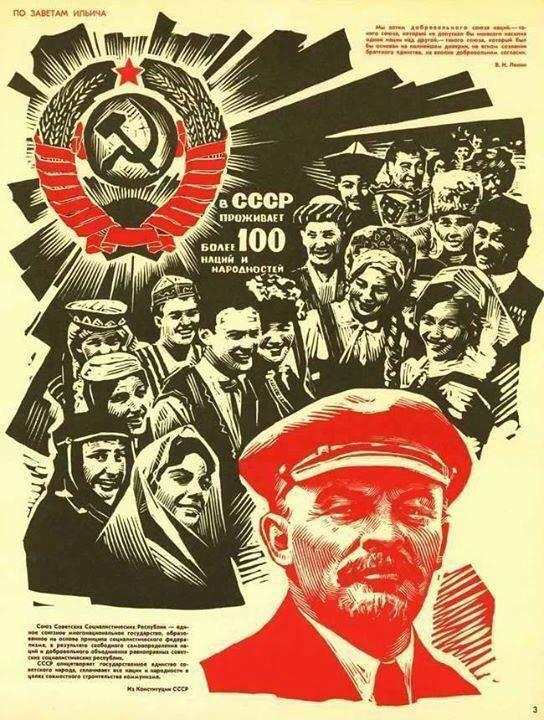More languages
More actions
No edit summary Tag: Visual edit |
(Some nations predate capitalism. Sources for that yet to be included.) Tag: Visual edit |
||
| Line 1: | Line 1: | ||
[[File:USSR national poster.png|thumb|304x304px|"More than 100 nations and nationalities live in the [[Union of Soviet Socialist Republics (1922–1991)|USSR]]."]] | [[File:USSR national poster.png|thumb|304x304px|"More than 100 nations and nationalities live in the [[Union of Soviet Socialist Republics (1922–1991)|USSR]]."]] | ||
A '''nation''' is a historically constituted, stable community of people, formed on the basis of a common [[language]], territory, economic life and culture.<ref>{{Textcite|author=[[Joseph Stalin]]|year=1913|title=Marxism and the national question|chapter=The Nation|pdf=|lg=|web=|mia=https://www.marxists.org/reference/archive/stalin/works/1913/03a.htm}}</ref> | A '''nation''' is a historically constituted, stable community of people, formed on the basis of a common [[language]], territory, economic life and culture.<ref name=":0">{{Textcite|author=[[Joseph Stalin]]|year=1913|title=Marxism and the national question|chapter=The Nation|pdf=|lg=|web=|mia=https://www.marxists.org/reference/archive/stalin/works/1913/03a.htm}}</ref> Some nations emerged and began to constitute themselves into [[Nation-state|nation-states]] during the transition from [[feudalism]] to [[capitalism]], specially in [[Europe]].<ref name=":0" /> Other nations instead predate the [[Capitalism|capitalist]] [[mode of production]], specially outside of [[Europe]].{{Citation needed}} Nations have the right to [[self-determination]], which may consist of independence or autonomy within a larger state.<ref>{{Citation|author=[[Joseph Stalin]]|year=1913|title=Marxism and the National Question|chapter=The National Movement|mia=https://www.marxists.org/reference/archive/stalin/works/1913/03a.htm#s2}}</ref> | ||
== See also == | == See also == | ||
Latest revision as of 23:11, 11 October 2024

A nation is a historically constituted, stable community of people, formed on the basis of a common language, territory, economic life and culture.[1] Some nations emerged and began to constitute themselves into nation-states during the transition from feudalism to capitalism, specially in Europe.[1] Other nations instead predate the capitalist mode of production, specially outside of Europe.[citation needed] Nations have the right to self-determination, which may consist of independence or autonomy within a larger state.[2]
See also[edit | edit source]
References[edit | edit source]
- ↑ 1.0 1.1 Joseph Stalin (1913). 'The Nation' in Marxism and the national question. [MIA]
- ↑ Joseph Stalin (1913). Marxism and the National Question: 'The National Movement'. [MIA]
